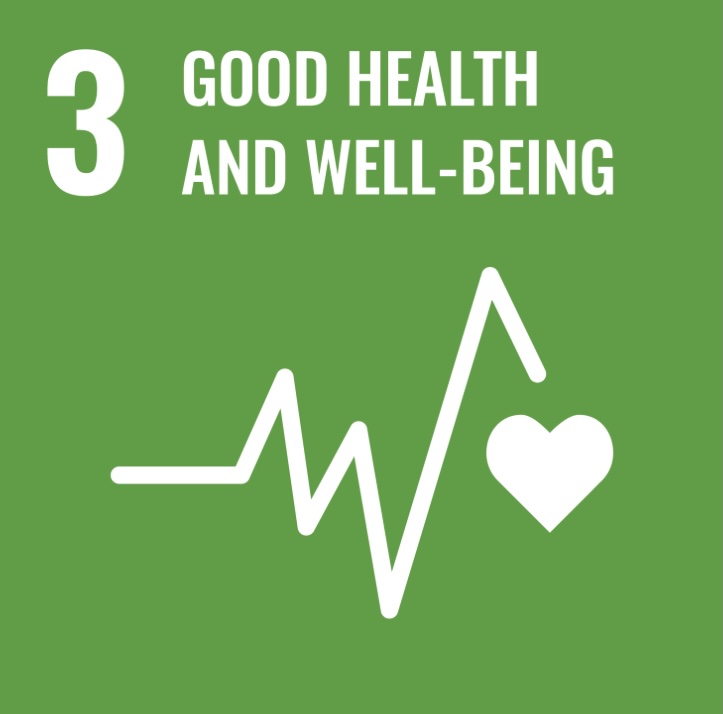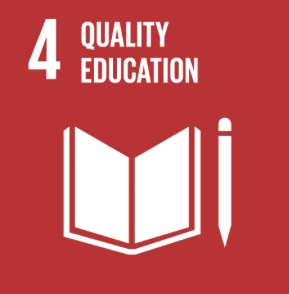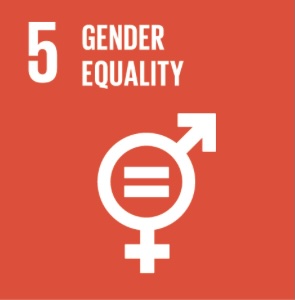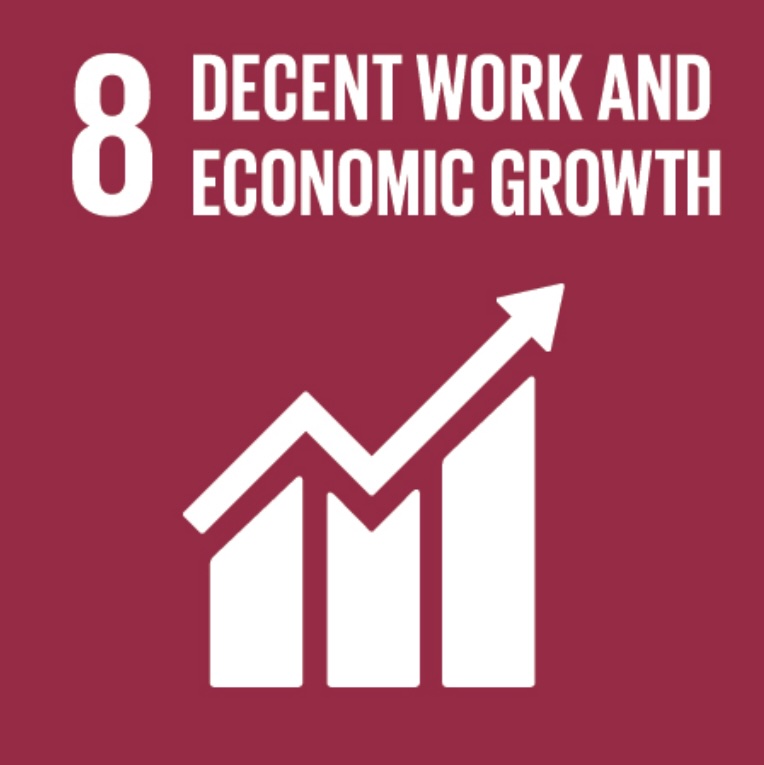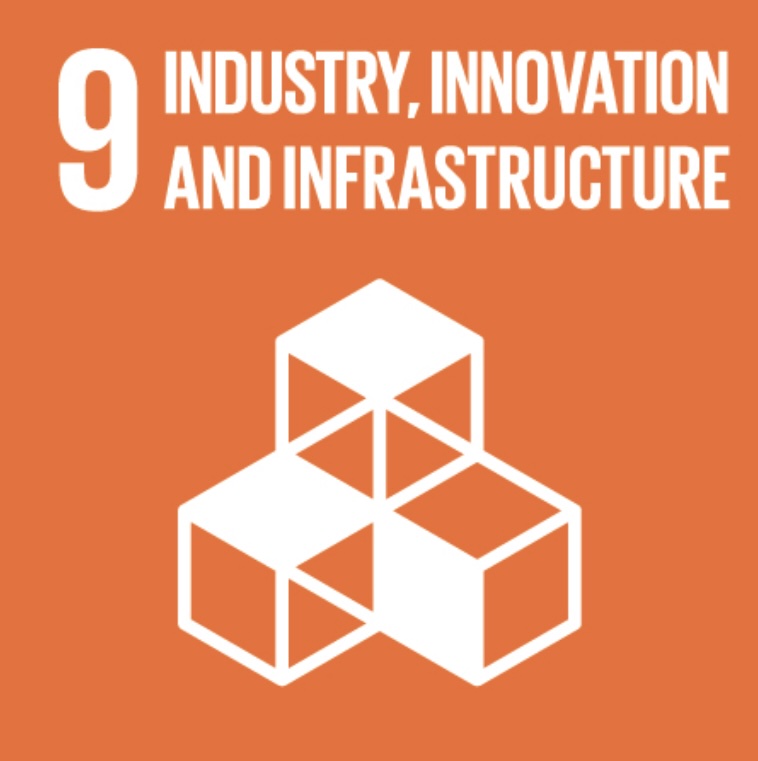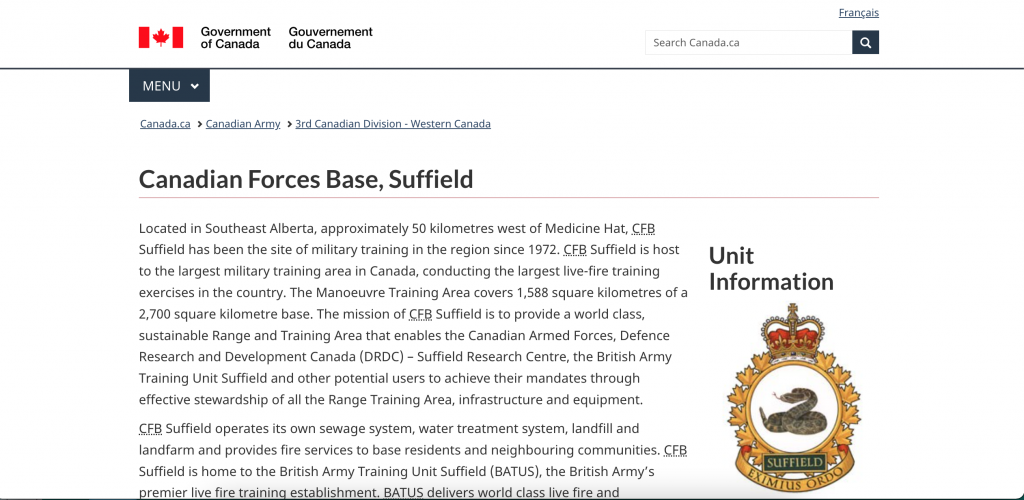The infographic below illustrates how the Sovereign Dyad project and the Neurodivergent Scale for Interacting with Robots (NSIR) are strategically mapped to the United Nations Sustainable Development Goals (SDGs). By placing the 17 Global Goals at the center of our architecture, we move beyond “standard accommodations” toward a model of Neuro-inclusive Sustainability.
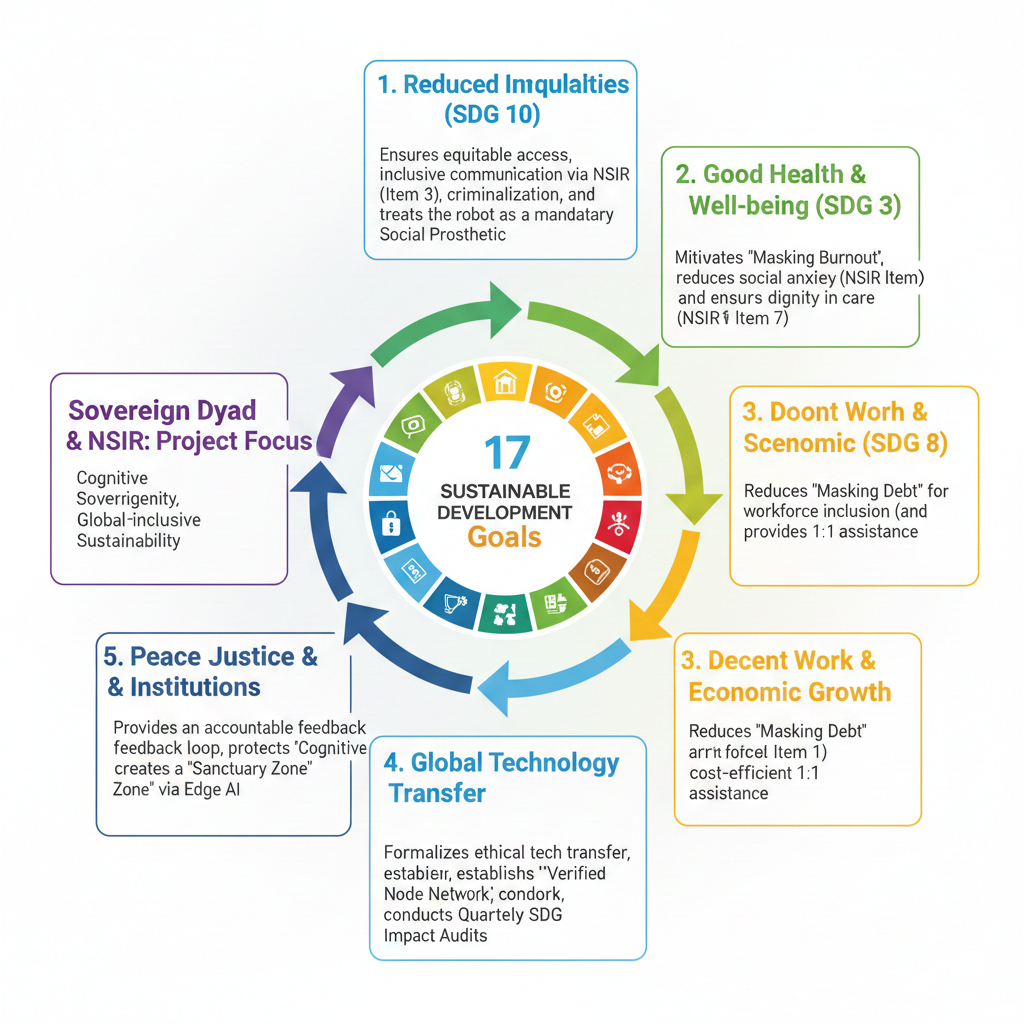
In the spirit of the ‘Social Exoskeleton,’ this visual representation of our SDG alignment was co-created with Gemini. It serves as a living example of how AI can be used as a social transformer to clarify and amplify neurodivergent advocacy.
How the Sovereign Dyad Addresses the Global Goals:
- SDG 10: Reduced Inequalities (Primary Alignment) Our core mission is to ensure that “No One is Left Behind” by the AI revolution. We use the NSIR to design robotic systems that accommodate diverse cognitive styles, ensuring equitable access to public services and preventing the “Social Eviction” or criminalization of neurodivergent behaviors.
- SDG 3: Good Health and Well-being The project addresses the hidden health crisis of “Masking Burnout”—the physical and mental exhaustion caused by performing neurotypicality. By creating a “Zero-Shame Sanctuary” via Edge AI, we provide a private space for emotional co-regulation and anxiety reduction (measured by NSIR Item 8).
- SDG 8: Decent Work and Economic Growth We promote workforce inclusion by using the AI as a “Social Exoskeleton” to reduce “Masking Debt.” This allows neurodivergent individuals to maintain lifelong productivity and participate in the economy without the “Crash and Quit” cycles typical of institutional environments.
- SDG 16: Peace, Justice, and Strong Institutions We advocate for “Cognitive Liberty” by establishing “Sanctuary Zones” where a user’s internal states are shielded from the “Normalizing Gaze” of the state. This protects students and citizens from “Institutional Betrayal” through hardware-level privacy.
- SDG 17: Partnerships for the Goals As a Registered UN SDG Action, the Sovereign Dyad project facilitates the ethical transfer of emancipatory technology across global regions. Through “Quarterly SDG Impact Audits,” we measure the global reduction in social penalties for neurodivergent populations.

